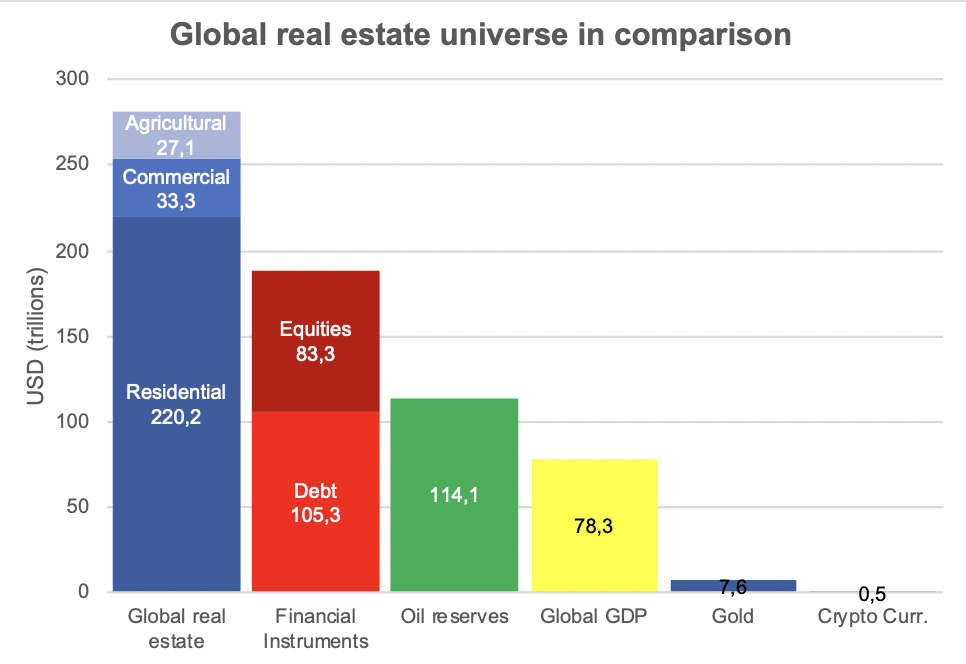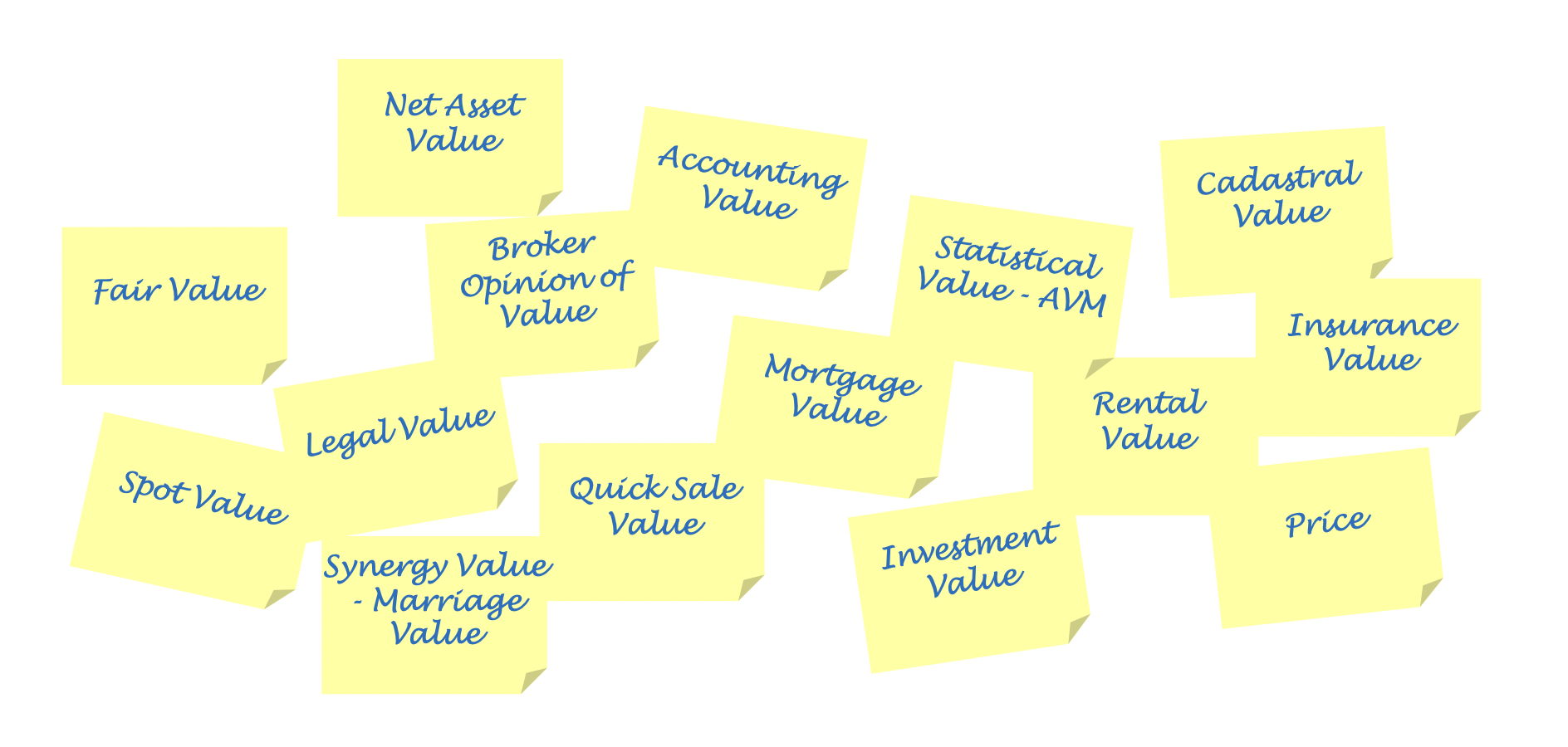Asset valuation in the Real Estate sector
This article written by Ghali El Kouhene (ESSEC Business School, Global BBA, 2019-2022) discusses the valuation methods in the real estate sector.
Definition of a real estate
Real estate is a property, land, buildings, air rights above the land (with certain limitations) and underground rights below the land. The term “real estate” means real, or physical, property. It is the land and its attached constructions that represent a capital good that produces a flow of services over time. Therefore, land includes earth’s surface, lateral support and subjacent support. But it also includes materials under the surface such as substances, minerals oil and gas.
There are four types of real estate assets. First, we find residential real estate. It is a type of leased property, containing either a single family or multifamily structure that is available for occupation for non-business purposes. This includes both new construction and resale homes. Secondly, there is commercial real estate. They are property used exclusively for business purposes or to provide a workspace rather than a living space. All of them are owned to produce income. Thirdly, we can mention industrial real estate. There are generally two uses for industrial properties: companies make things, or they store things. These includes manufacturing buildings and property, as well as warehouses.
Finally, land is real estate or property, minus buildings and equipment that is designated by fixed spatial boundaries. Land ownership may offer the titleholder the right to natural resources on the land. Traditionally it is defined as a factor of production, along with capital and labor.
Importance of the real estate sector in the economy
According to the European Real Estate Forum, the real estate sector has a higher economic importance than several other sectors. Indeed, it makes a major contribution to GDP in the European Union and provides prosperity and jobs. The real estate sector contributed approximately 7% to the USA economy and 12% to the European economy.
Real estate represents the majority of the existing real capital and is particularly relevant too because of its additional function as provision for old age and protection against inflation.
The value of the world’s real estate reached US$281 trillion, the highest figure we’ve ever recorded. Residential real estate accounted for the largest share ($US220.2 trillion) of that huge figure.
Real estate is by far the most significant store of wealth, representing more than 3.5 times the total global GDP. For comparison, financial instruments like equities represent US$83,3 million, which is three times less than commercial real estate.

Why does the need for property valuation arise?
The need for property valuation arises in many decisions in real estate project like investing, managing, disinvesting and financing. Thereby, valuation is present throughout the life of real estate investment. It is not a unique need for real estate but common to any investment such as stock investment.
There are fundamental characteristics to be evaluated in the valuation process. Characteristics like the use of the asset (commercial, residential, etc.), the location, the antiquity (1st hand, 2nd hand), construction costs and surfaces.

What are the different types of value for a real estate asset?
According to the Royal Institution Of Chartered Surveyors standards (RICS) which offers qualifications and standards recognized in the real estate sector, a value is an estimated amount for which an asset or an obligation should be exchanged at the valuation date between a buyer willing to buy and a seller willing to sell, in a free transaction, after appropriate marketing, in which the parties have acted with sufficient information, prudence and without coercion. This specific definition is declined in several others values like equitable value, fair value or market value. For each value, different methods of valuation are used.
Which methods are used to appraise an asset?
The great diversity of real estate assets must be approached from different approaches in order to determine their value. The existence of comparable assets in the market, the type of use made of them, the cash flows that they may eventually generate, replacement costs or the state of development of the same opens up a wide range of valuation methodologies. In this way we can identify at least six different types of valuation methodologies applicable to the different types of real estate assets that we will classify into at least 14 large groups. The main axes of the valuation methodologies are: comparison, residual, capitalization and cash flows. It is important to know that each type of real estate asset has its preferred method of valuation. For example, the comparison method is mainly utilized for assets for own use (dwellings and premises mainly) and for rustic land. The concept for this method consists in comparing a property of known price and characteristics with the one we want to value. Regarding the discounted cash flow methodology, it consists in determining the market value of a property by estimating the cash flows generated by the property (mainly rents) during a determined period of time and the resale of the investment.
Reading the real estate market requires the development of an information tool. The study of the traditional approach has shown that the reliability of real estate valuation methods is intimately linked to the information available. Information is essential when it comes to asset valuation for each of the different methods (list of rents, the price per square meter etc.). The difficulty in the valuation process does not come from the methodology but from the availability of relevant information. To complete his/her analysis of the real estate deal, the expert can also consider the future instead of the past contained in historical data.
For example, the value of the real estate can be obtained by estimating the growth rate of future rents. Today, artificial intelligence (AI) can be used to develop new valuation models are based on machine learning (ML) algorithm.
How to invest in the real estate sector?
Real estate investment consists of acquiring a property not for the purpose of living in it, but as a savings investment to earn an income from it. It is considered as one of the most stable and profitable investments in the long term. For this reason, investing in real estate is not a trivial gesture: you must know enough about the state of the market and the different investment possibilities not to put your money in risky options.
Several reasons can push you to proceed to a real estate investment. First, it is a great way to build up a tangible and lasting estate. Secondly, investing in real estate enables to finance a property with the aim of making it your main residence later on, by means of rental investment. And lastly, it improves your purchasing power by collecting additional income.
There are several possibilities when it comes to investing in real estate. Among them, there is direct investment which means creating a property portfolio. Indeed, any private individual can firstly invest and acquire a property as a primary residence and later on acquire other properties for the purpose of making a rental investment in order to collect the rents. In the other hand, other types of investment such as indirect investment. The concept of indirect investment consists in buying shares of property company or Real Estate Investment Trust’s (REITS) which aims at the constitution, management and exploitation of a real estate portfolio. Therefore, this company manages real estate assets on behalf of its shareholders. Lastly, a real estate investment company (SCPI) is a collective investment vehicle which is very similar to REITS. Except that in return for this investment, investors receive social shares. Unlike company shares, these units are not listed on the stock exchange. These savings vehicles offer a very good market return in return for a moderate risk.
Related posts on the SimTrade blog
▶ All posts about Professional experiences
▶ Clément KEFALAS My experience of Account Manager in the office real estate market in Paris
▶ Chloé POUZOL Mon expérience de contrôleuse de gestion chez Edgar Suites
About the author
Article written in March 2021 by Ghali El Kouhene (ESSEC Business School, Global BBA, 2019-2022).

